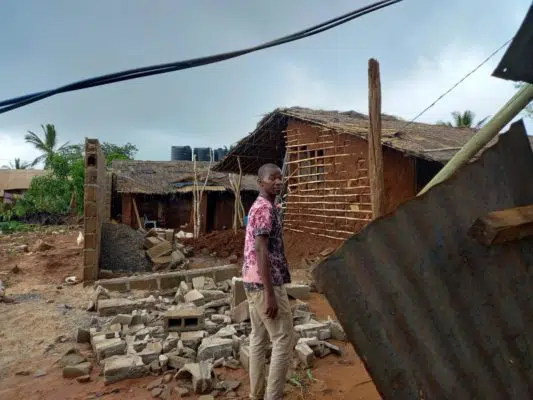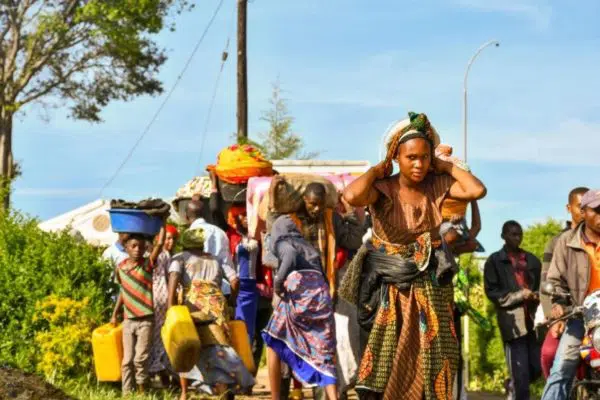
© UNHCR
Statement by the Under-Secretary-General for Humanitarian Affairs and Emergency Relief Coordinator, Martin Griffiths, the UN High Commissioner for Refugees, Filippo Grandi, and the Administrator of the United Nations Development Programme (UNDP), Achim Steiner
Brussels, New York, Geneva – As the Syrian crisis enters its 12th year without a solution, it is the Syrian people who are paying the price. Within the country, and across the region, the outlook for Syrians is deteriorating. Needs are far greater than ever.
Syria remains an enormous humanitarian and displacement crisis. More than 6.9 million people have fled their homes inside the country, and over 6.5 million remain outside Syria, of whom 5.7 million are refugees in the region, still being hosted by neighbours.
Since 2020, there has been a surge in humanitarian needs inside Syria, now at their most acute since the crisis began. And this even while the conflict ebbs in intensity.
Today, 14.6 million people in Syria rely on aid, 1.2 million more than a year before; more than 90 percent of Syrians live in poverty. Gender-based violence and risks to children are on the rise, while potential exposure to explosive ordnance remains high, with one in two at risk. Food insecurity has touched new records; 13.9 million people go hungry every day, a misery compounded by wheat shortages partly due to war in Ukraine. Nearly one in two Syrian children are out of school and vulnerable to child labour, early and forced marriages, trafficking, and recruitment by armed actors.
In Turkey, Lebanon, Jordan, Iraq and Egypt, who have generously hosted refugees and continue to do so, socio-economic pressures have pushed the numbers of Syrian refugees and host communities needing humanitarian assistance to 20 million in 2022 from 10.4 million in 2021. Our appeal will directly target approximately 12 million out of those in need.
To keep the displaced afloat, the international community has shown real generosity – and much has been achieved to provide rudimentary services. To assist the people in need, investments in early recovery inside Syria are needed, alongside humanitarian aid. Investing in communities, including sustainable livelihoods, and improving safe access to basic services will support socioeconomic resilience and social cohesion, and give Syrians a chance to live in dignity and secure a future for their children.
Our overriding message today is: now is not the time to turn away from Syrians, making theirs a forgotten crisis. Apathy is not an option. Millions in Syria and the region need our help, more than ever.
The solution to the crisis will, of course, have to be political. The UN, under the leadership of the Special Envoy, is working to advance that track. But the people of Syria, refugees and neighbouring host countries, deserve continued international solidarity and support.
That is why we – the chiefs of the United Nations humanitarian, refugee and development agencies – speak up again this year, on the day of the pledging day of the Brussels VI Conference “Supporting the future of Syria and the region”.
Together we lead the implementation of the UN-coordinated response to the Syria crisis. Our appeals – the Humanitarian Response Plan for Syria (HRP) and Regional Refugee and Resilience Plan (3RP) – ask for a combined US$10.5 billion for 2022.
In 2022, the 3RP seeks US$ 6.1 billion — its largest budget request since inception in 2015 — to address the growing needs of approximately 7.1 million refugees, asylum seekers and stateless people, including 5.7 million registered Syrian refugees, and 12.9 million vulnerable host community members. The appeals are currently funded at 8 percent (HRP) and 11 percent (3RP).
We thank countries gathering today in advance for supporting the UN’s response plans generously.
Media contacts:
- OCHA: In Geneva, Jens Laerke, +41 79 472 9750, laerke@un.org
- UNHCR: In Amman, Rula Amin, aminr@unhcr.org +962 (0)790 04 58 49; In Geneva, Matt Saltmarsh; saltmars@unhcr.org +41 79 967 9936
- UNDP: In New York, Theodore Murphy, theodore.murphy@undp.org +1-718-915-2097
Originally published by UNHCR on 10 May 2022





